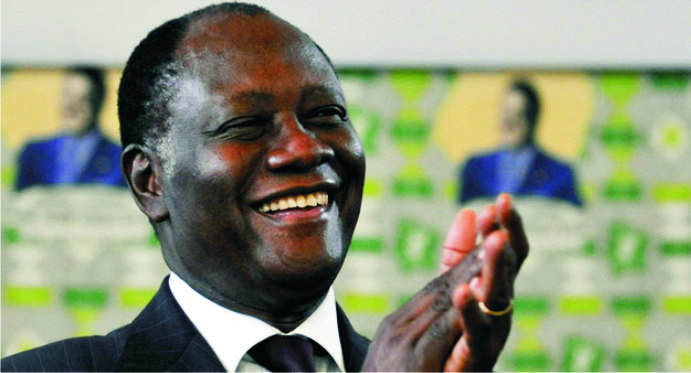Business
AfDB Presidency: Cote d’ Ivoire Backs Adesina’s Re-Election Bid

President Alassane Ouattara of Côte d’ Ivoire has appointed , Minister of Economic and Financial Affairs Adama Koné to support the re-election of Dr Akinwumi Adesina as President of the Africa Development Bank (AfDB).
Quattara said this at the first Council of Ministers of the country’s new government team last Friday.
He explained that Koné, a former Minister of Economy and Finance, was reappointed to represent the country as the Executive Director in AfDB to support and work for Adesina’s re-election.
According to him, Adesina deserves a second term because of the great job he is doing.
“For my new ministers, I will like to congratulate the new Ministers and Secretaries of State who have just joined the government team.
“You are men and women of experience, committed people. I am convinced that you will make an important contribution to the daily action of the government.
“As you have seen, we have expanded the government to reflect the diversity of our country. Thus, almost all regions of Côte d’Ivoire are represented.
“One of the major changes is the split of the Ministry of Interior and Security, this was the case from 1991 to 2011.
“The separation of these two ministries seems necessary considering the importance of the challenges in our country” he explained.
He said the Ministry of Security and Civil Protection would deal with security threats and the fight against terrorism, in liaison with the Ministry of Defence.
“I will like to say that this new government is a Mission Government. Your mission will be to work tirelessly to improve the welfare of our fellow citizens.
“I therefore, count on each and every one of you to be on ground, alongside our people”, he added.
Business
FIRS Clarifies New Tax Laws, Debunks Levy Misconceptions

Business
CBN Revises Cash Withdrawal Rules January 2026, Ends Special Authorisation

The Central Bank of Nigeria (CBN) has revised its cash withdrawal rules, discontinuing the special authorisation previously permitting individuals to withdraw N5 million and corporates N10 million once monthly, with effect from January 2026.
In a circular released Tuesday, December 2, 2025, and signed by the Director, Financial Policy & Regulation Department, FIRS, Dr. Rita I. Sike, the apex bank explained that previous cash policies had been introduced over the years in response to evolving circumstances.
However, with time, the need has arisen to streamline these provisions to reflect present-day realities.
“These policies, issued over the years in response to evolving circumstances in cash management, sought to reduce cash usage and encourage accelerated adoption of other payment options, particularly electronic payment channels.
“Effective January 1, 2026, individuals will be allowed to withdraw up to N500,000 weekly across all channels, while corporate entities will be limited to N5 million”, it said.
According to the statement, withdrawals above these thresholds would attract excess withdrawal fees of three percent for individuals and five percent for corporates, with the charges shared between the CBN and the financial institutions.
Deposit Money Banks are required to submit monthly reports on cash withdrawals above the specified limits, as well as on cash deposits, to the relevant supervisory departments.
They must also create separate accounts to warehouse processing charges collected on excess withdrawals.
Exemptions and superseding provisions
Revenue-generating accounts of federal, state, and local governments, along with accounts of microfinance banks and primary mortgage banks with commercial and non-interest banks, are exempted from the new withdrawal limits and excess withdrawal fees.
However, exemptions previously granted to embassies, diplomatic missions, and aid-donor agencies have been withdrawn.
The CBN clarified that the circular is without prejudice to the provisions of certain earlier directives but supersedes others, as detailed in its appendices.
Business
Shippers Council Vows Commitment To Security At Nigerian Ports
-
Business2 days ago
Shippers Council Vows Commitment To Security At Nigerian Ports
-

 Business2 days ago
Business2 days agoCBN Revises Cash Withdrawal Rules January 2026, Ends Special Authorisation
-

 Business2 days ago
Business2 days agoNigeria Risks Talents Exodus In Oil And Gas Sector – PENGASSAN
-
Business2 days ago
NCDMB, Others Task Youths On Skills Acquisition, Peace
-

 Business2 days ago
Business2 days agoFIRS Clarifies New Tax Laws, Debunks Levy Misconceptions
-

 Politics2 days ago
Politics2 days agoTinubu Increases Ambassador-nominees to 65, Seeks Senate’s Confirmation
-
Sports2 days ago
Obagi Emerges OML 58 Football Cup Champions
-

 News2 days ago
News2 days agoTinubu Swears In Christopher Musa As Defence Minister

